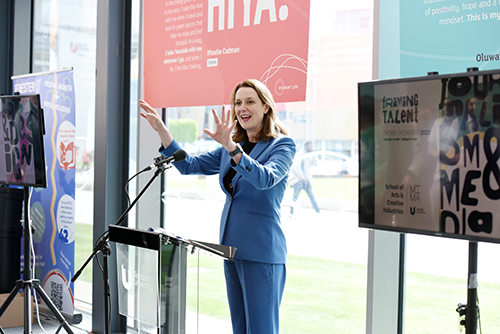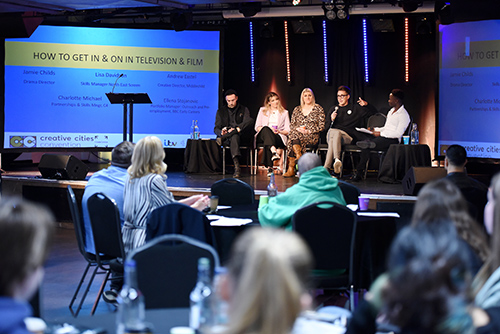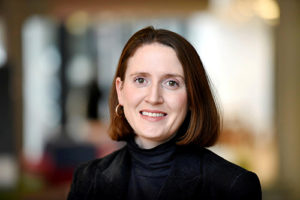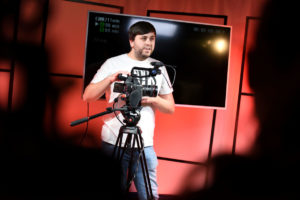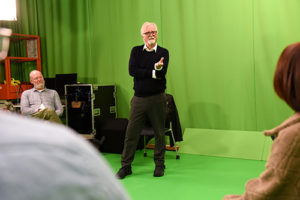Dr. Laura Sillars, Dean of the School of Arts and Creative Industries and Director of MIMA, shares her thoughts on students who join us part-way through a degree course.
Every year students switch to study with us moving from where they began their studies to one of our undergraduate degree courses. I asked them how it had been and what we could learn from the experience of these brave movers who shake things up by taking a bold step and shifting institutions midway through their course.
Let me begin with a caveat – there are many amazing places to student creative subjects across the UK and beyond. While we all want to promote our own unique institutions, we do not want to do this at the expense of our valued colleagues labouring elsewhere. Education, particularly creative education, is an eco-system and most of us know each other and care about each other! Nevertheless, each place has its strengths. A series of discussions with students who have moved to study on our creative courses midway through their studies in their second year or third year gives them perspective on the differences between institutions. It has helped me understand some of the inherent qualities that our courses, location and institution can offer.
Here’s what I learned that our students valued:
- I see you …
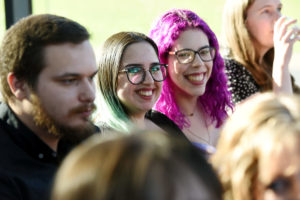
Some of the very large providers can be great for gregarious, self-starters who don’t mind being in big groups and who can forge their lives very independently from their University life. Don’t get me wrong, we have many outgoing, self-starting students! However, I’ve learned that we are also a great place for quieter students. For those people, big impersonal environments can make them feel lost and they feel anonymous.
The overwhelming feedback our movers and shakers gave me was that at Teesside University they felt seen and heard. They were not remote from their teachers but were connected and coached. Their ideas could come through and they developed projects that genuinely helped them find and grow their creative voice. Treated as a unique individual they felt seen and heard.
- Staff
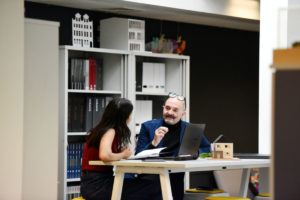
Linked to the point above, a third-year graphic design student fed back that even in his first meeting with an academic staff member he had the most meaningful and useful conversation of his higher education experience to date. Our staff listen to their students and are great at tuning in to what makes them interesting and special. Gently and carefully our staff challenge them to produce their best work.
This nurturing and creative care-taking is visible across all of our courses. It shines out in student module feedback and our student surveys, but it’s a value that is easy to miss or misunderstand. In short, our staff are particularly good at helping creative students become uniquely their best selves. This links to the students’ ability to get into the career of their choice – they stand out.
- Students
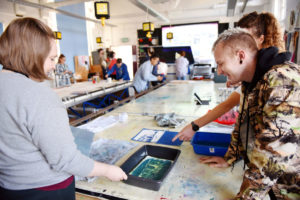
The safe-space studio culture that is developed in our school across all subjects means that movers and shakers can quickly make friends. Everyone I talked to had been made to feel welcome. They felt like they were a positive addition to the group rather than a latecomer interloper.
Also, while many creative universities have large inner city campus venues in high value real-estate locations, one of the huge benefits of our locations is that we have spacious facilities. This means that students can enjoy an environment which isn’t under too much pressure from other groups. There is dwell space and students can drop in and use facilities out of class time. Our movers and shakers really enjoy this capacity and it’s not standard provision across the sector.
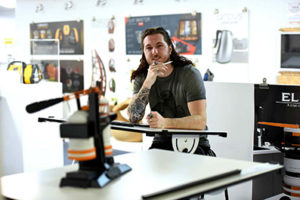
Because students are focused on being their best creative selves, the working environment feels supportive rather than competitive. This is really important to our movers and shakers who reported feeling anxiety due to competition in other settings.
- Smaller groups
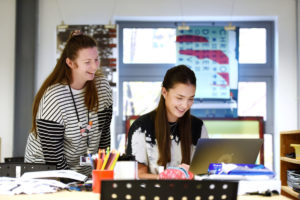
Even when we have larger groups, our students are predominantly taught in small studio groups and work together on projects. For some students who love the scale and energy of a massive studio culture this would not matter. For others, however, they feel that the calmness and connectedness of a smaller group can allow them to create their best work. This was a theme throughout.
Movers and shakers enjoyed being in an environment where they knew the people that they were working alongside. They noted times when they’d worked with the support of their peer group and had gained useful advice and feedback.
- Space and Facilities
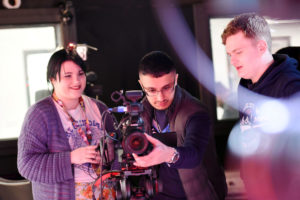
We have brilliant facilities. This is something that is easy for us who are immersed in the place can take for granted. Movers and shakers love the access to our wood and metal workshops, fabric printing, paper workshops through to green screens and high-tech studios. They also love working with our specialist technicians who helped them develop their wackiest of ideas.
There are many other reasons to study one of our creative courses, these conversations really helped put into perspective what we offer both new starters and movers and shakers. I have learned a lot from the conversations with this group of students about what makes our learning community and environment work for students. Thank you to those who spent time talking with me.
Laura
Find out more about courses available in the
School of Arts & Creative Industries
Undergraduate Study:
Postgraduate Study:


